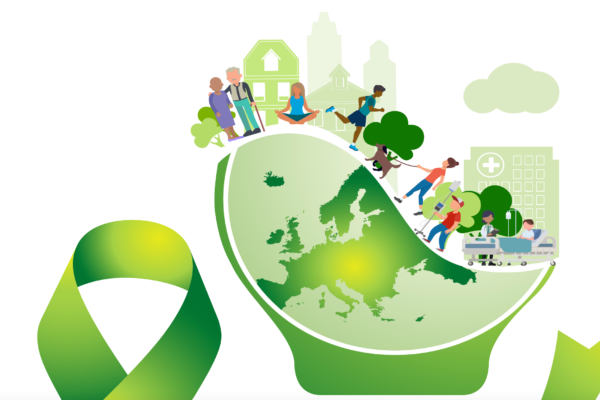Europa Uomo backs new sustainable agenda
Europa Uomo and a consortium of organisations are calling on healthcare decision-makers to redesign cancer care on a sustainable basis, to benefit people and the planet.
The 26 organisations, representing patients, academia, research, cancer policy and the pharmaceutical industry, say that developments such as artificial intelligence, machine learning, digital health, precision medicine, biomarker testing and new therapies bring the genuine prospect of transforming cancer care.
With cancer diagnoses on the rise, pressure continues to grow on already over-extended healthcare budgets, with waste and carbon emissions also increasing. But “smart investment” can improve outcomes, alleviate demands on healthcare systems, improve access, reduce waste and contribute to a better planet, say the organisations.
“Cancer care decisionmakers have a choice to make,” they say, in a new joint report, titled Innovate for Sustainable Cancer Care. “Either to continue with cancer care as we know it, caring for more and more people with the same or fewer resources with little regard for sustainability of any kind, or to innovate which will free up resources for more sustainable care.”
The report provides real-life examples of how innovation has the potential to transform cancer care. It calls on health decision-makers to make five commitments:
- To focus on innovation and sustainability rather than simply continuation and cost-containment
- To invest in programmes which change the way cancer care is delivered
- To use robust data and analytics of patient needs to facilitate evidence-based decision making
- To ensure that care reimbursement focuses on long-term value and efficiency
- To ensure that innovation networks create pathways towards implementation.
The report was launched at a major conference on Rethinking the Future of Cancer Care hosted by The Financial Times newspaper in partnership with the European Federation of Pharmaceutical Initiatives and Associations (EFPIA). It was commissioned and financed by the EFPIA Oncology Platform.
